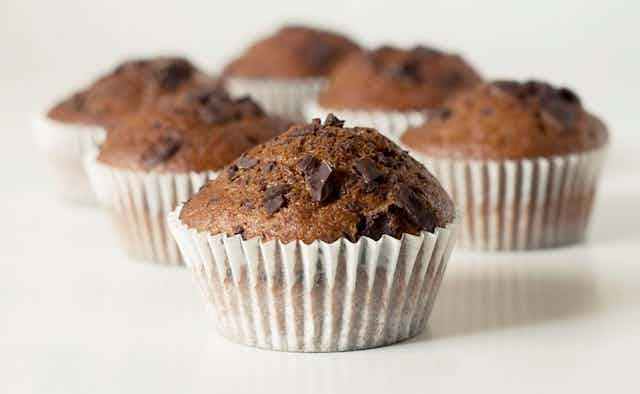Want to win a Nobel prize? You might increase your chances by eating more chocolate, according to a letter in Nature last Thursday.
The research, which outlines a survey of chocolate consumption of 23 male Nobel laureates during their years of prizewinning work, relates that 10 (43%) report eating chocolate more than twice a week, compared to 25% of 237 educated, age-matched men.
This survey follows a 2012 analysis showing the level of national chocolate consumption correlates strongly with the per capita incidence of Nobel Prize Awards.
Flavonoids - the key chemicals claimed to boost cognitive ability - are also in red wine, but you’re unlikely to do great science if you indulge too heavily in that direction.
Of course, correlation does not necessarily equal causation. We can’t say if flavonoid consumption is directly linked to Nobel prizes; there may be a third factor (coffee?) involved.

Yet if the survey’s conclusion is true and chocolate indeed helps cognitive ability it may not, regrettably, have the same effect for memory. After all, the sample group for the survey was pretty small, and - as the joint recipient of the 1996 Nobel prize in Physiology or Medicine – I can’t remember whether or not I actually filled in the chocolate survey form.
In addition, some awardees were excluded from the survey, as chocolate is linked to aggression (thus no Peace Prize recipients allowed) and depression (which is more prevalent in writers, so no Literature laureates either).
I also wonder a bit about the control group. Those respondents were just normal human beings. A better control group - as the authors acknowledge - would be those who’ve been awarded Ig Nobel Prizes awarded annually for research that “first makes people laugh, and then makes them think”.
Chocolate trafficking
All who attend the big Nobel Prize dinner receive gold-foil covered chocolate replica Nobel Prize medals, though the actual laureates walk away with a certificate, a “true gold” medal and cheque.
I still have a couple of the chocolate coins in the refrigerator. Maybe they date to 1996 when Rolf Zinkernagel and I got the nod from Stockholm, or perhaps to the 100th anniversary four years later when the Nobel Foundation invited back all the extant laureates who were still able to travel.
Over the past decade, my continued involvement in research on immunity to the influenza viruses has had me commuting between the University of Melbourne and my former place of full-time work, St Jude Children’s Research Hospital in Memphis, Tennessee.

Mostly I’m in Melbourne, but part of the job when I cross the Pacific to the American South is to deliver Australian dark chocolate to my much younger colleagues, the people who actually do the research.
The big demand by my young US associates is for varieties of Cadbury’s Special Dark Chocolate. Everyone is hooked on the Old Gold and the one with roasted almonds while a few, very discriminating types really go for the rum and raisin.
There is no such traffic the other way: though there are great niche chocolate makers in places such as Seattle, the mass-market US variety has, until recently, been somewhat bland.
Hershey heaven
In the Nobel list, the famous Hershey is the late American geneticist and bacteriologist Alfred Hershey, not the Pennsylvania chocolate manufacturer. To the question of what constitutes scientific happiness, Hershey famously rejoined
To have one experiment that works, and keep doing it all the time.

“Hershey heaven” is the well-known description of that desire for him to come to the laboratory every morning, knowing what question to ask and being certain that the result would be important.
The Hershey-Chase experiments of 1952 showed, using viruses that infect bacteria (bacteriophages), that DNA is indeed the material of inheritance. Bacteriophages are just great for Hershey heaven, as experiments can be set up one day and read the next.
Such rapidity and consistency is generally not the rule for science but Al’s name, at least, is yet another link between intellectual excellence and (American) chocolate.
Passing on the benefits
Some anonymous comments in last week’s survey of Nobel laureates provide insights into individual relationships with chocolate:
I can offer you a sure example of a “double dissociation” between Nobel Prize winning and chocolate consumption … I am not particularly fond of chocolate but received a Nobel Prize. My wife is crazy about chocolate and eats it almost every day but so far she has not received the phone call.
Having grown up in England after the second world war when chocolate was rationed I have been trying to make up for many years of abstinence ever since.
I am trying to consume more chocolate every day to recapture my youthful IQ.
I guess now I’ll have to update my book The Beginner’s Guide to Winning the Nobel Prize with a (very short) chapter on dark chocolate, crème de cacao, chocolate mousse and so forth, though the research so far has not had a whole lot to say on dose levels.
Anyway, and if nothing else, this particularly incisive piece of Nobel research does make me feel good about my chocolate trafficking through US customs, as one of the jobs for any successful senior scientist is to bring on the next generation.

